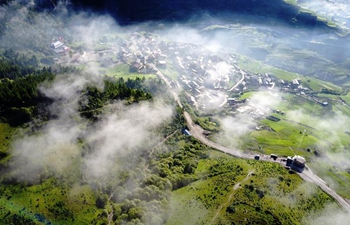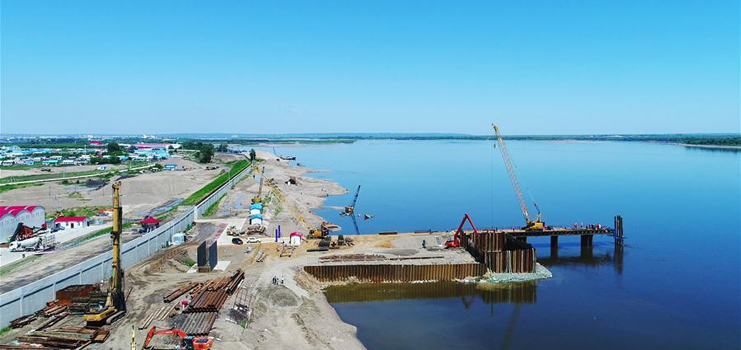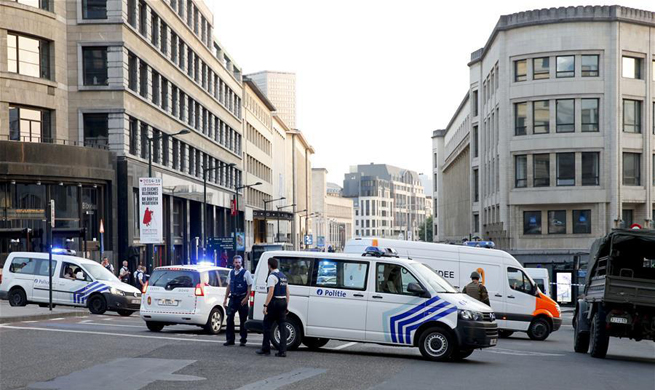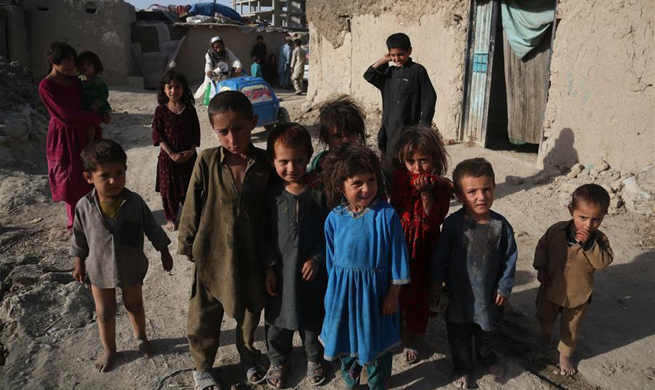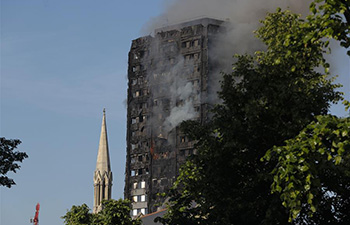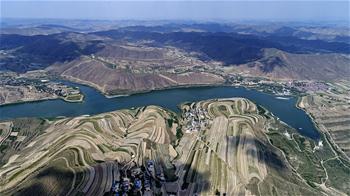MOSUL, Iraq, June 21 (Xinhua) -- Iraqi forces pushed closer to Mosul's historical al-Nuri mosque on Wednesday amid fierce clashes with Islamic State (IS) militants in central of the old city in the western side of Mosul, the Iraqi military said.
"The commandos of the Counter-Terrorism Service (CTS) forces began progress at dawn toward al-Nuri mosque and the surrounding areas," a source from the CTS told Xinhua on condition of anonymity.
"After hours of fierce house-to-house battles, the troops seized some alleys and took new positions in the old city located some 100 meters away from al-Nuri mosque," the source said.
The mosque with its famous leaning minaret, which gave the city its nickname "al-Hadbaa" or "the hunchback," has a symbolic value, as it was the place where IS leader Abu Bakr al-Baghdadi declared the cross-border "caliphate" in Iraq and Syria in his sole public appearance in July 2014.
Meanwhile, the army's helicopter gunships conducted two air strikes on the old city center and destroyed an IS vehicle, killing three IS militants aboard, along with destroying an ammunition warehouse and killing 10 extremist militants, a statement by the Joint Operations Command (JOC) said.
The progress was slowed by the stiff resistance of IS militants and a large number of roadside bombs and booby-trapped buildings, in addition to IS snipers who took positions in the buildings of heavily-populated neighborhoods, the source said.
According to UN reports, some 100,000 civilians are still trapped in the IS-held areas in the old city center and the adjacent al-Shifaa neighborhood. The extremist group is using the civilians as human shields.
Iraqi forces, backed by international coalition, launched their final push on Sunday morning to drive out IS militants from al-Shifaa neighborhood and most of the densely-populated old city center in the western side of Mosul, locally known as the right bank of Tigris River.
Mosul, 400 km north of Iraq's capital Baghdad, has been under IS control since June 2014, when government forces abandoned their weapons and fled, enabling IS militants to take control of parts of Iraq's northern and western regions.





